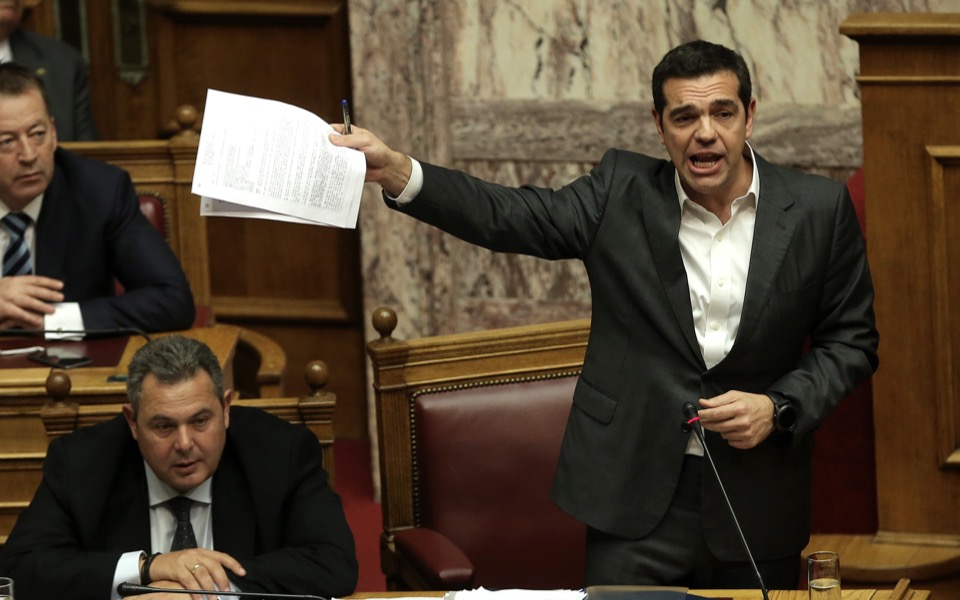A month of revelations

July is turning out to be a month of revelations and extreme paradoxes, both on the domestic and the European level. A referendum was held in Greece and Prime Minister Alexis Tsipras interpreted a very loud “no” vote as a mandate to keep the country in the eurozone, a position that was also upheld by Greece’s pro-European parties and the European establishment that supported the “yes” camp. Right after that, Tsipras was mandated by 251 lawmakers in the 300-seat House – an incredible majority – to negotiate a new memorandum with the country’s creditors, an event that caused uproar in the ranks of his SYRIZA party.
The government’s position was supported by lawmakers from the opposition parties and opposed by SYRIZA’s anti-memorandum faction. This is a practice that is quite common in European countries with a long and stable parliamentary tradition but inconceivable in a country like Greece, beset as it is by tough partisan conflict. Some may say that this shows that the Greek political system is finally maturing – but they would be hopeless optimists.
Last but not least, the forced shuttering of Greece’s banks and the imposition of capital controls allowed the country’s citizens to become accustomed to the use of credit cards, debit cards, online banking and the restricted use of cash, with impressive speed. Given that this will be the situation for a number of months – with a few modifications here and there – some may say that we are finally becoming true Europeans, at least to the extent that our ability to manage our funds and be more frugal in our spending is concerned.
July has also been a month of change for Europe. Up until a week ago Europe’s biggest troll was Tsipras. This role has now been assigned to that rock that provides stability to the entire euro system, German Finance Minister Dr Wolfgang Schaeuble.
Schaeuble started lashing out at the Americans, verbally assaulting the governor of the European Central Bank and forwarding plans for Greece’s exit from the common currency. He roused France from its slumber, created the first rift between Paris and Berlin and angered Washington with his arrogant behavior and his refusal to discuss a debt haircut for Greece, while also alienating Ireland, Italy and Austria, which had once stood behind his policy.
It seems that Yanis Varoufakis and Tsipras threw him off his game. But that doesn’t mean he’s done, because he continues to work toward his goal of shrinking the eurozone, starting with a Greek exit.
The deal between Athens and its creditors is still in its early phase. Everything is still possible. Most importantly, the issue of a return to a national currency is back on the table, albeit reintroduced in a ludicrous manner. It remains to be seen what fate will bring.





